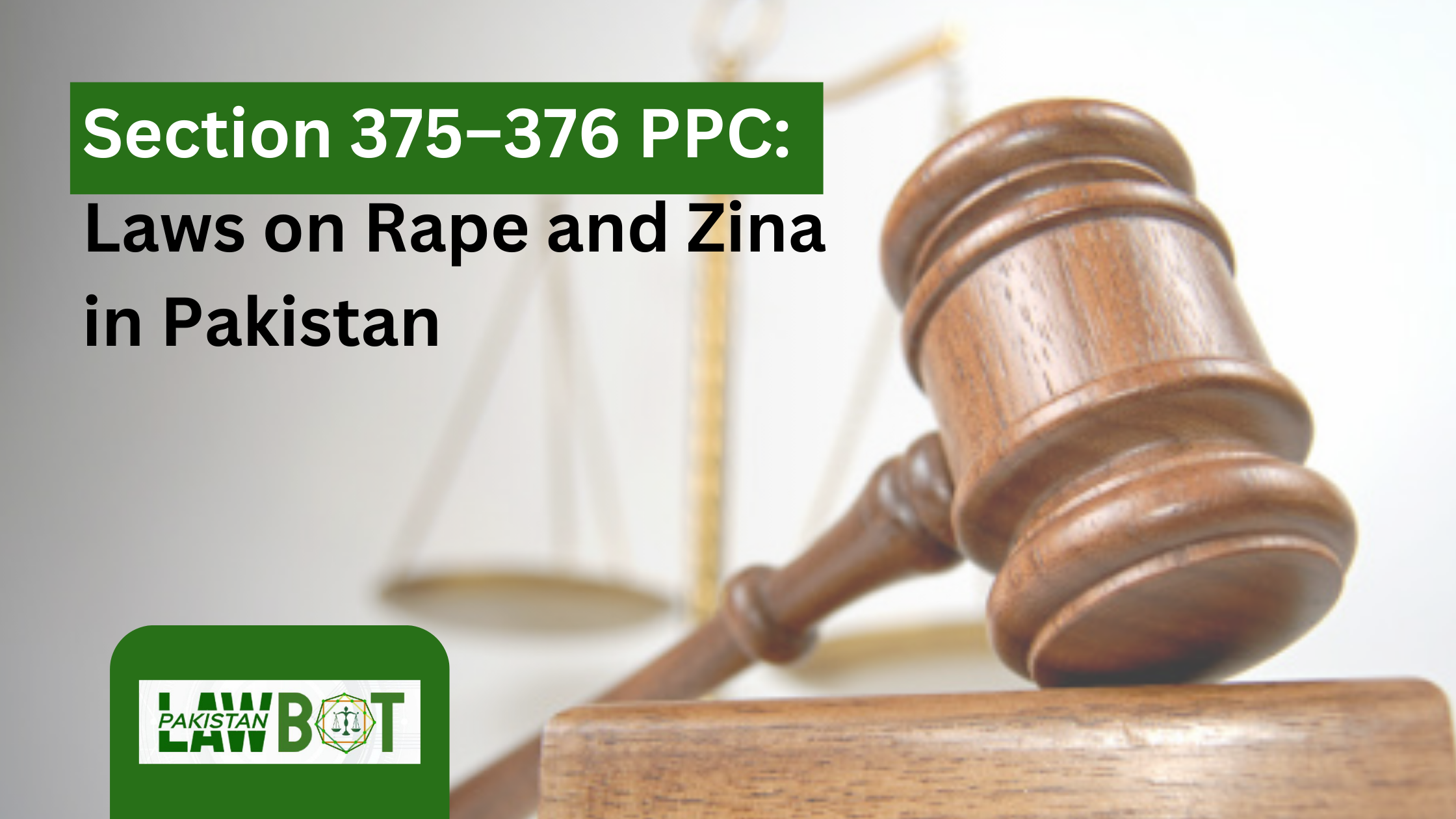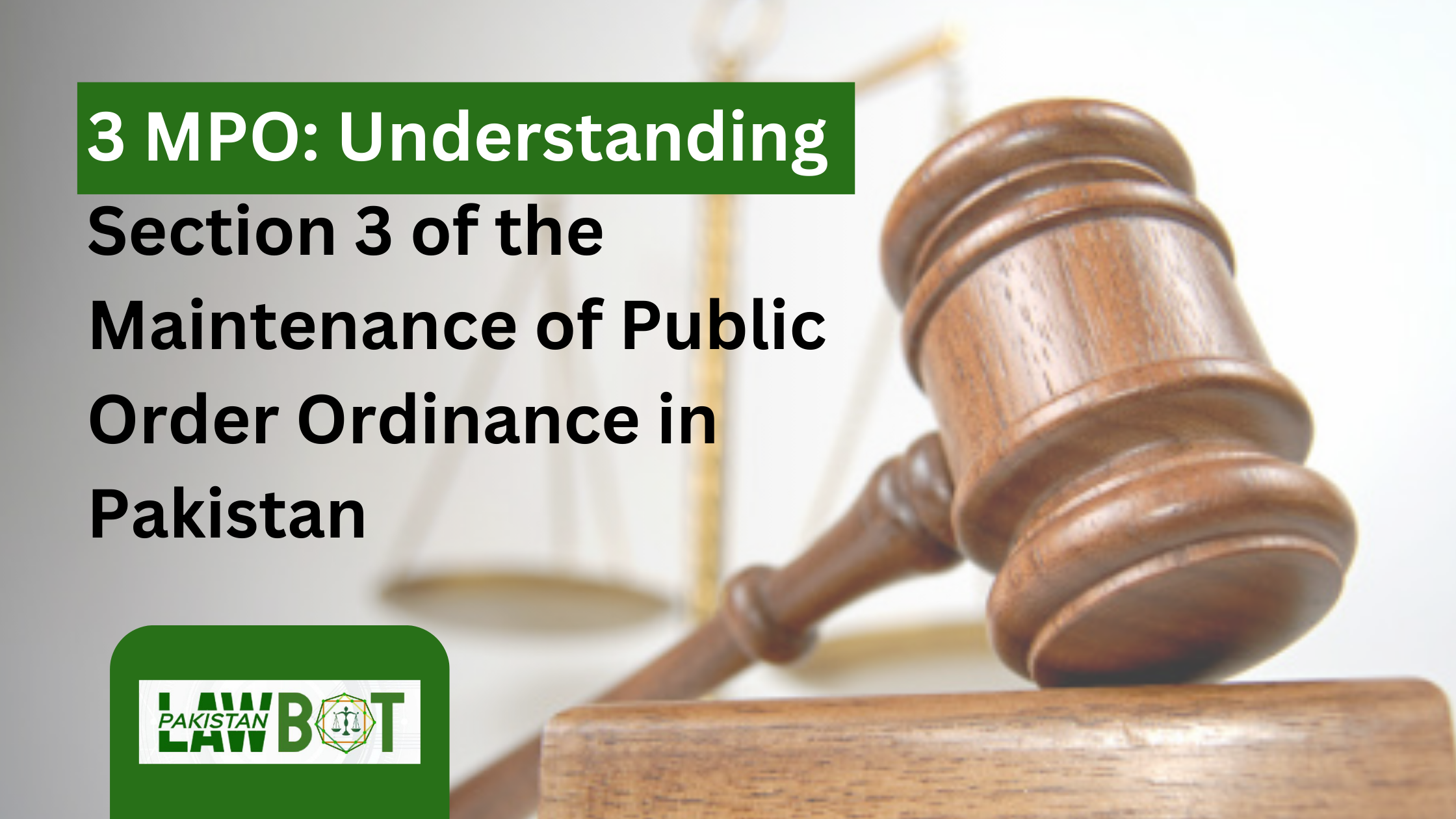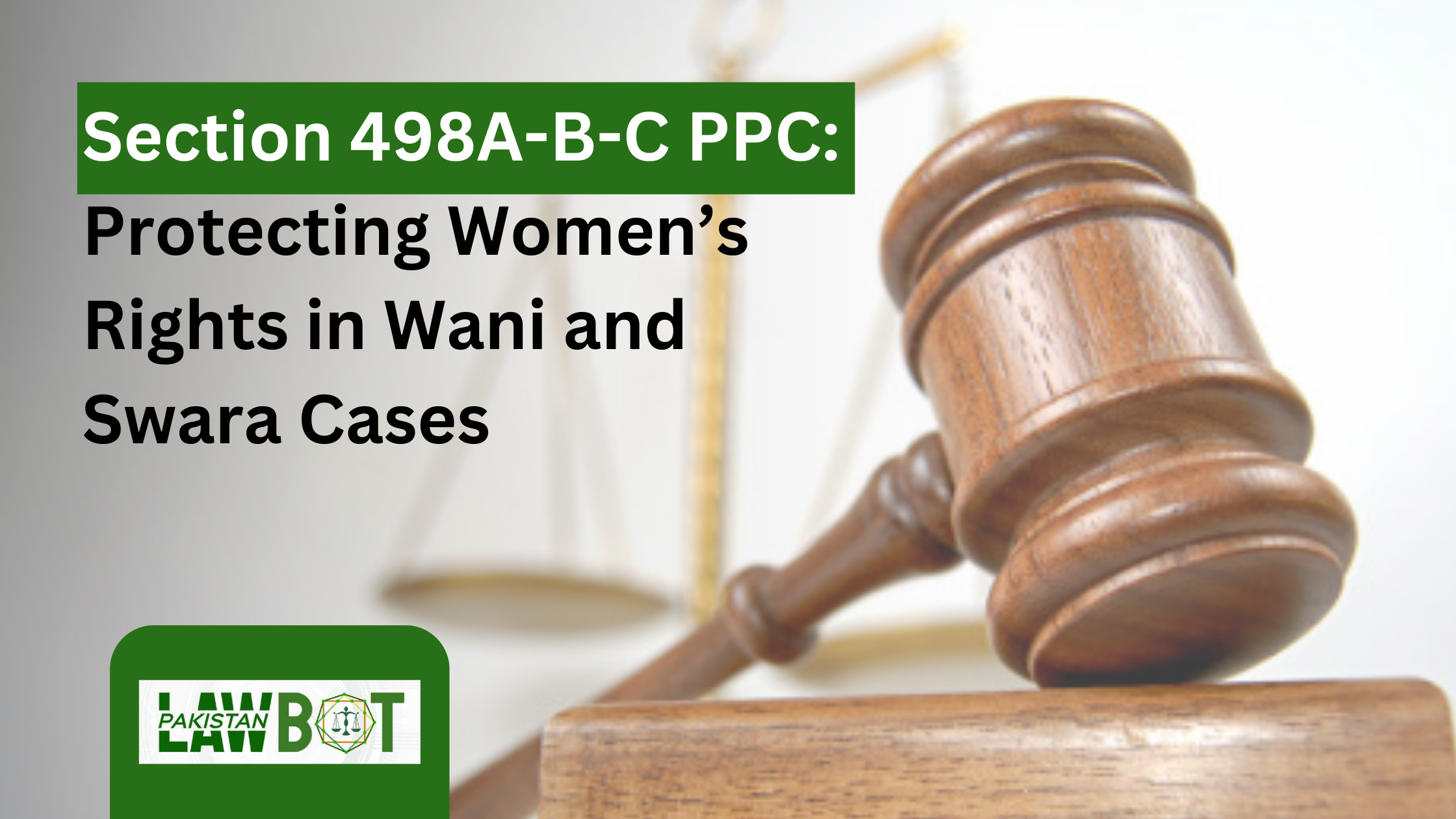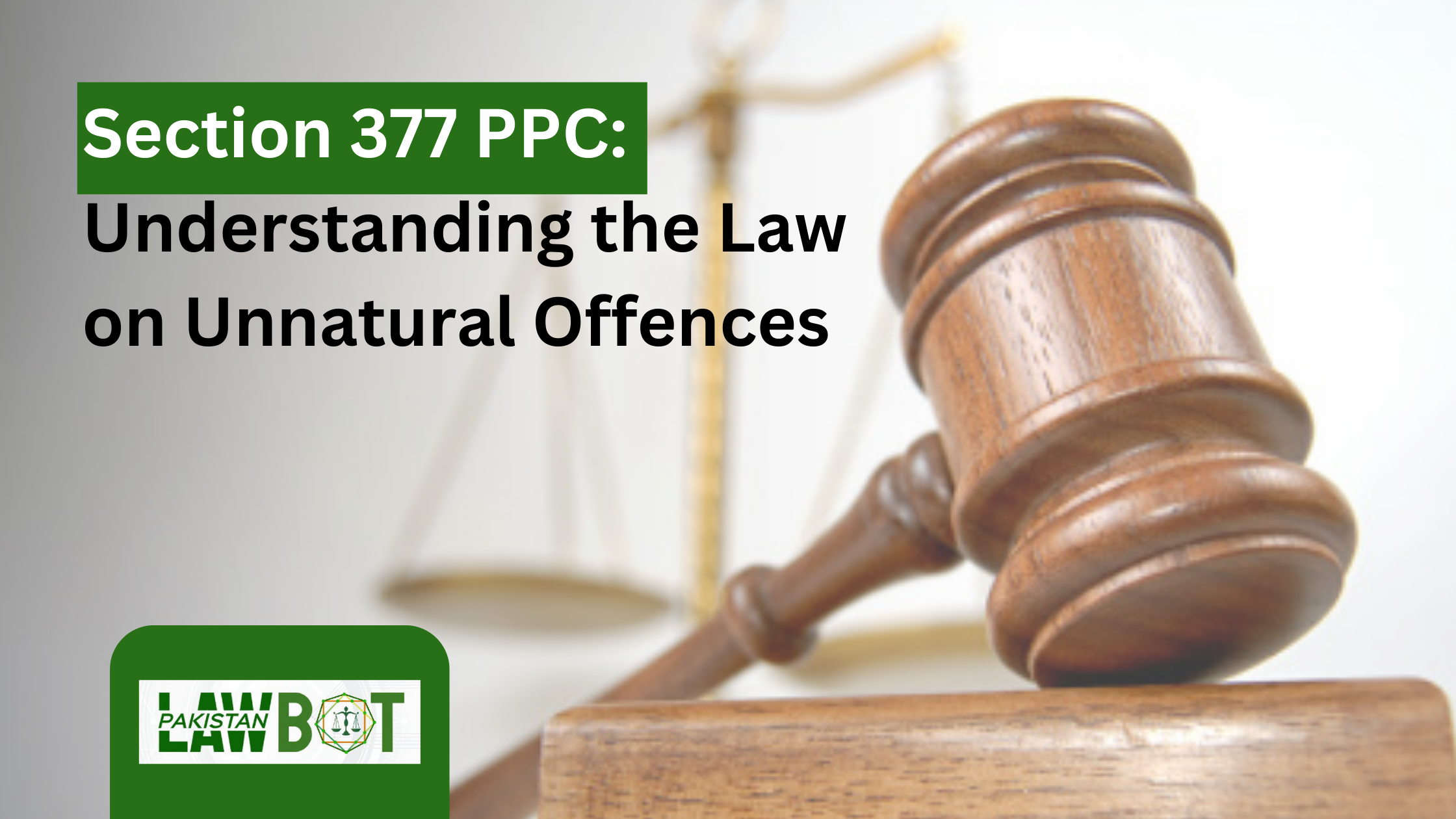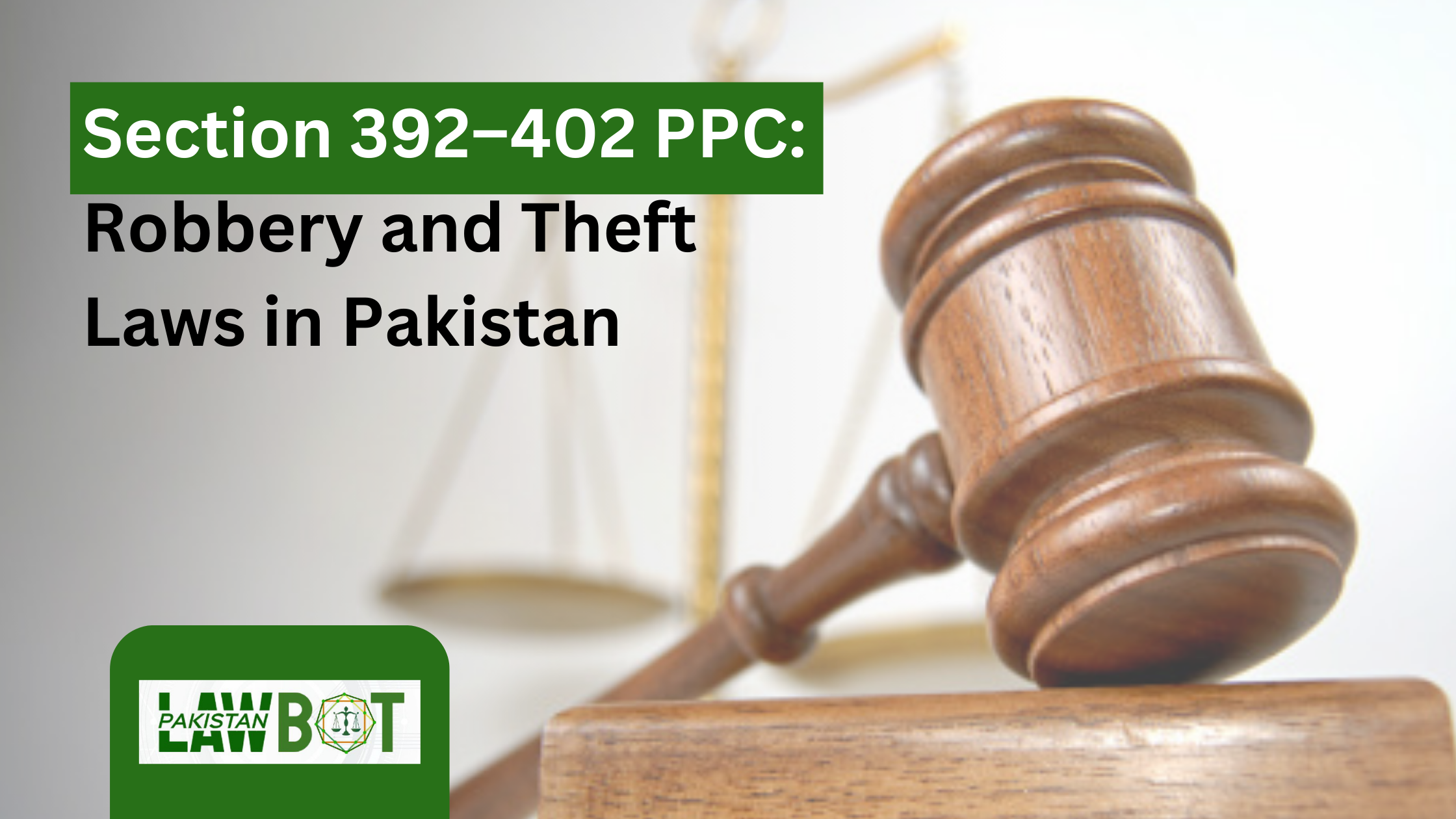The concepts of rape and zina are among the most sensitive and complex areas of criminal law in Pakistan. Both fall under the Pakistan Penal Code (PPC), specifically Section 375 and Section 376, which deal with rape, and other related sections that address zina under Hudood laws. Understanding these provisions is vital for legal professionals, policymakers, and the general public. This article explains these sections in detail, highlighting their scope, punishment, and impact on society.
Understanding Section 375 PPC – Definition of Rape
Section 375 of the PPC defines rape and outlines circumstances in which an act of sexual intercourse amounts to rape. According to the law, a man is said to commit rape if he has sexual intercourse with a woman under the following conditions:
-
Without her consent.
-
With her consent, but obtained through fear of death or harm.
-
With her consent when she is under 16 years of age.
-
With or without consent if the woman is not his lawful wife.
This section emphasizes the importance of consent, age, and lawful marriage. The law recognizes that consent obtained through coercion or threat is not valid, and intercourse with a minor automatically qualifies as rape regardless of her agreement.
Section 376 PPC – Punishment for Rape
Section 376 provides the punishment for rape under the Pakistan Penal Code. The severity of punishment reflects the seriousness of the crime:
-
The offender may face death penalty or life imprisonment.
-
In certain cases, the court may also impose rigorous imprisonment of not less than 10 years along with a fine.
-
If the rape is committed by more than one person (gang rape), the punishment becomes more severe, often leading to the death penalty or life imprisonment.
The law aims to act as a deterrent to protect women and vulnerable individuals. However, challenges remain in enforcement, as social stigma and weak investigation processes often make convictions difficult.
The Concept of Zina in Pakistan’s Legal Framework
While rape is addressed under Sections 375 and 376, zina is treated separately under Hudood Ordinances, introduced in 1979. Zina refers to sexual intercourse outside the bond of lawful marriage, which can occur with or without consent. It is categorized into two main types:
-
Zina liable to hadd – Punishment under Islamic injunctions, which may include stoning to death (rajm) or 100 lashes.
-
Zina liable to tazir – Punishment determined by the court, usually imprisonment or fines.
The distinction between rape and zina was often blurred in earlier legal practice, leading to controversies. Women reporting rape were sometimes wrongly charged with zina due to lack of evidence. Reforms have since been made to reduce such injustices.
Difference Between Rape and Zina
Although the terms are sometimes confused, rape and zina are distinct in law:
-
Rape (Section 375–376 PPC): Non-consensual sexual intercourse, punishable by death or life imprisonment.
-
Zina (Hudood laws): Consensual sexual intercourse outside marriage, punishable under Islamic laws.
This difference is critical to ensure that victims of sexual violence are not unjustly criminalized.
Legal Reforms and the Protection of Women
Over the years, Pakistan has introduced several reforms to address shortcomings in rape and zina laws:
-
Women Protection Act 2006: This act separated the crime of rape from zina to prevent misuse of the law.
-
Criminal Law Amendment 2016: Introduced harsher punishments for sexual violence, mandatory DNA testing, and quicker trials.
-
Anti-Rape Ordinance 2020: Set up special courts for rape cases, witness protection programs, and allowed for chemical castration in certain cases.
These reforms aimed to protect victims, improve conviction rates, and create a more just system.
Challenges in Implementation
Despite strong laws, rape and zina cases in Pakistan face serious challenges:
-
Social stigma often prevents victims from reporting crimes.
-
Weak investigation mechanisms lead to insufficient evidence.
-
Cultural and family pressures discourage victims from pursuing legal action.
-
Misuse of zina laws has historically led to wrongful accusations, particularly against women.
These issues highlight the gap between law and practice, making it essential for reforms to focus on better policing, judicial efficiency, and public awareness.
The Role of Society and Awareness
Laws alone cannot solve the problem of sexual violence. Society must also play a role in creating an environment where victims feel safe to come forward. Awareness campaigns, education on consent, and removal of cultural taboos are necessary to reduce cases of rape and zina.
Non-governmental organizations (NGOs) and civil society groups have been instrumental in providing legal aid, counseling, and rehabilitation to victims. Media also plays a powerful role in shaping public perception and pressuring authorities to act.
Religious and Ethical Perspectives
Islam strongly condemns both rape and zina. Rape is seen as a grave violation of human dignity and honor, while zina is prohibited to protect the sanctity of marriage and family. Both acts disrupt the moral fabric of society, but the treatment of victims in cases of rape is particularly emphasized in Islamic teachings, where justice and protection of the oppressed are paramount.
Conclusion
Sections 375 and 376 of the Pakistan Penal Code are crucial for addressing the crime of rape, while zina falls under separate Hudood provisions. Understanding the difference between the two is essential to ensure justice and protect victims. Although Pakistan has taken significant steps through reforms like the Women Protection Act and Anti-Rape Ordinance, challenges in enforcement remain.
For real progress, laws must be accompanied by effective implementation, awareness, and a change in societal attitudes. Only then can Pakistan create a safer environment where justice prevails, and the dignity of every individual is respected.

